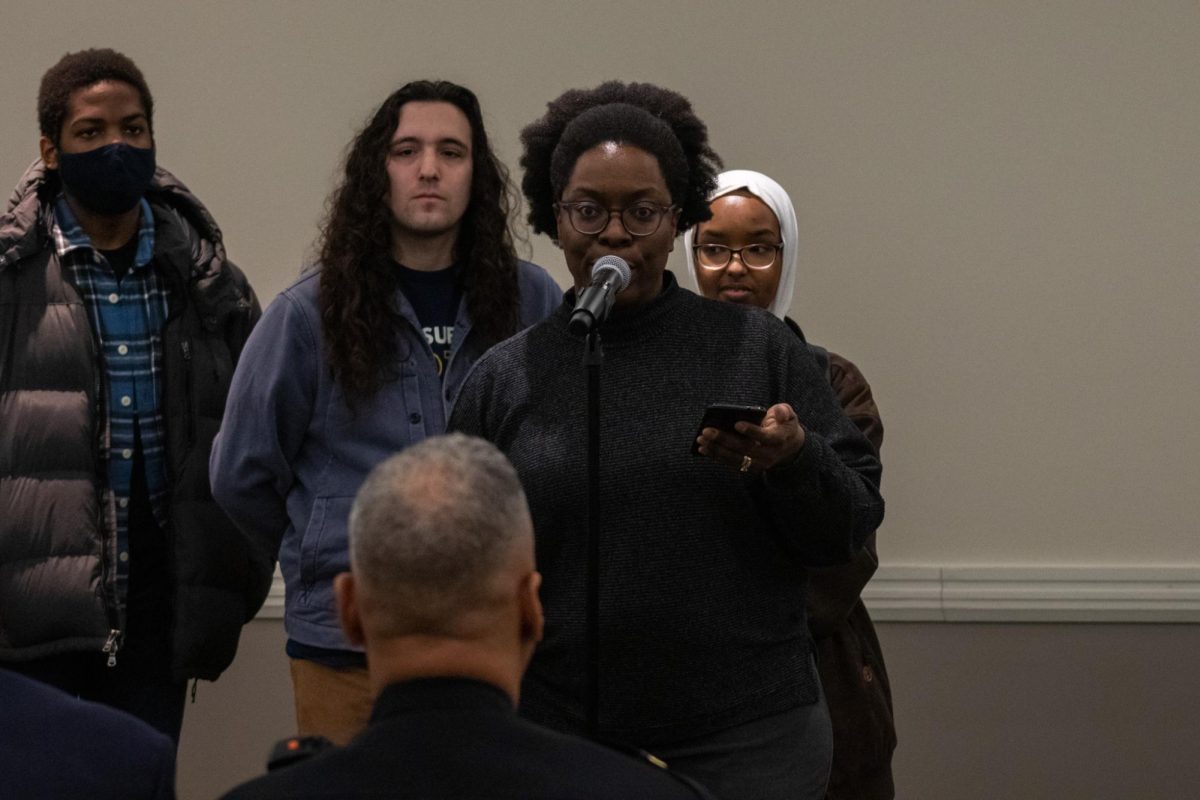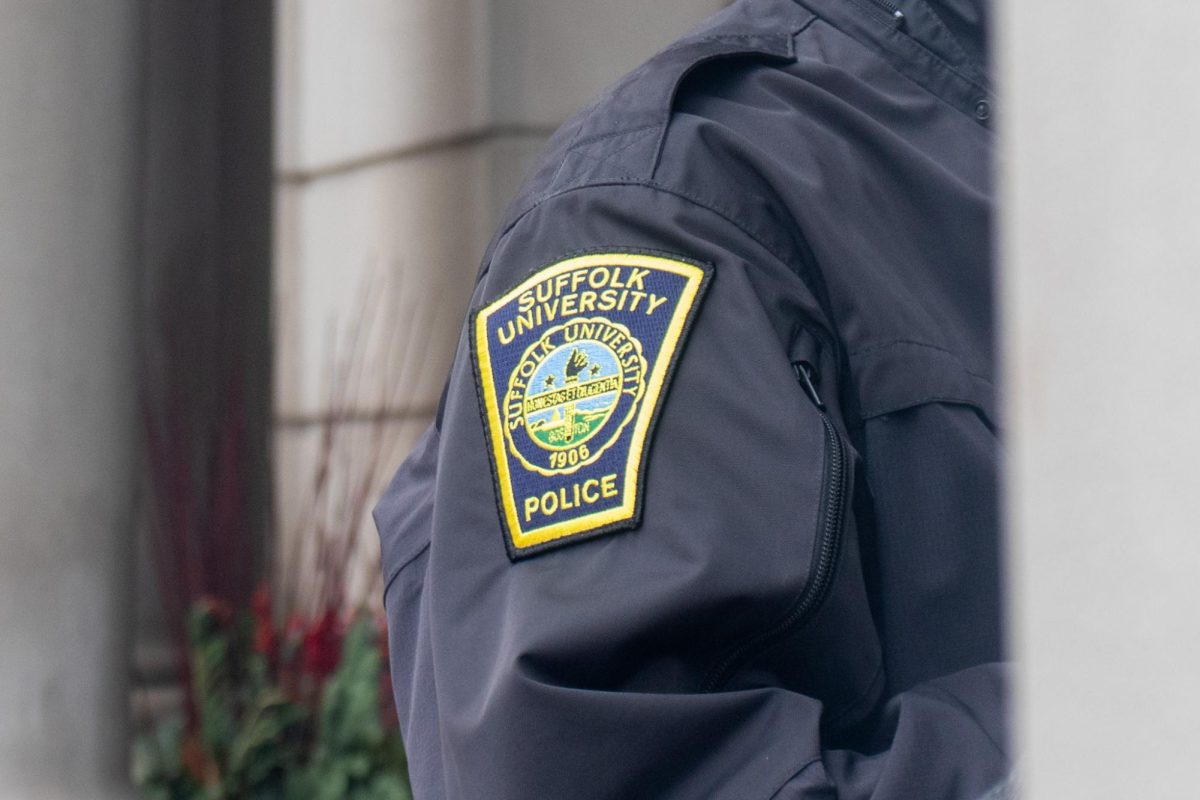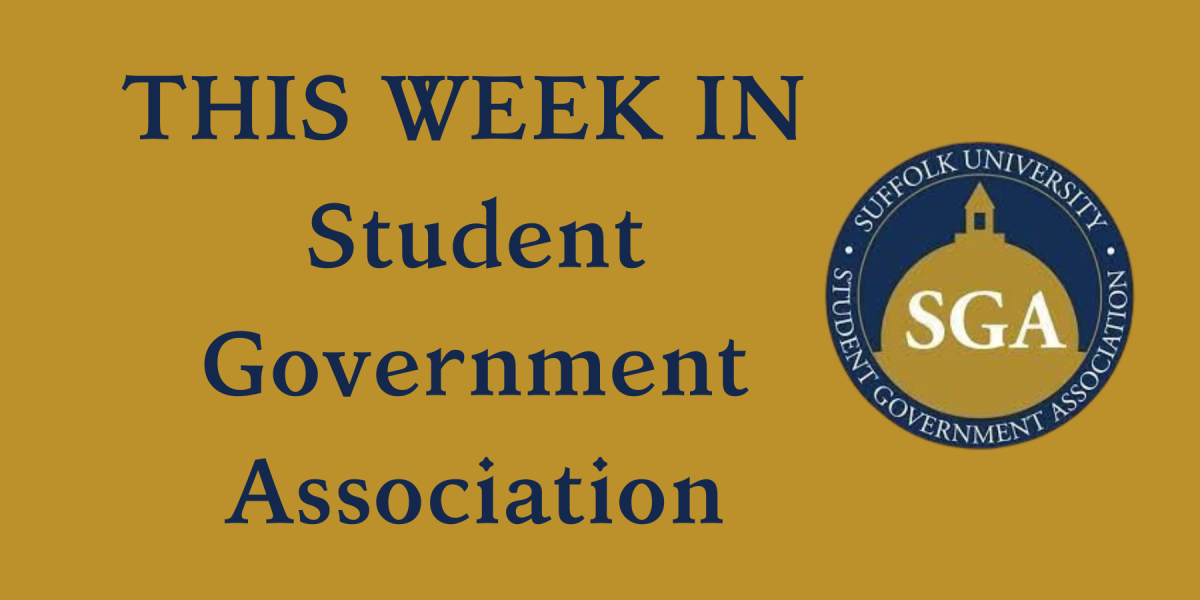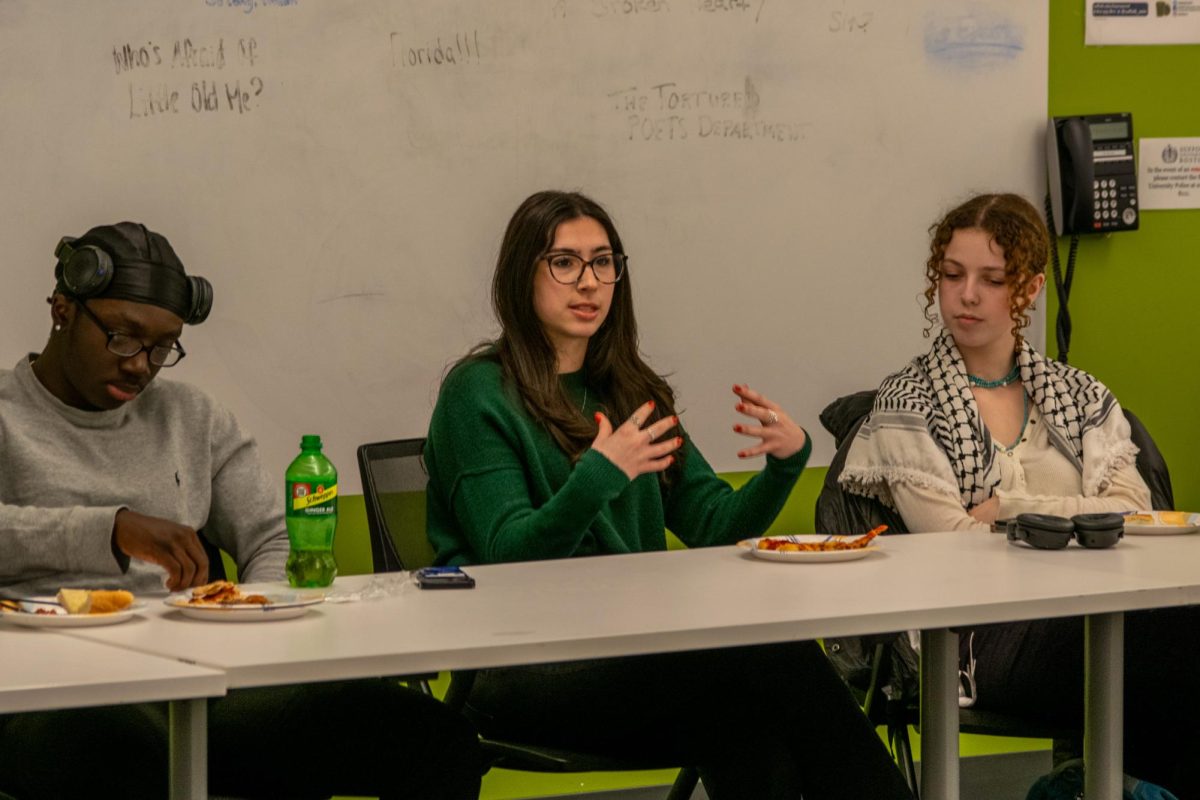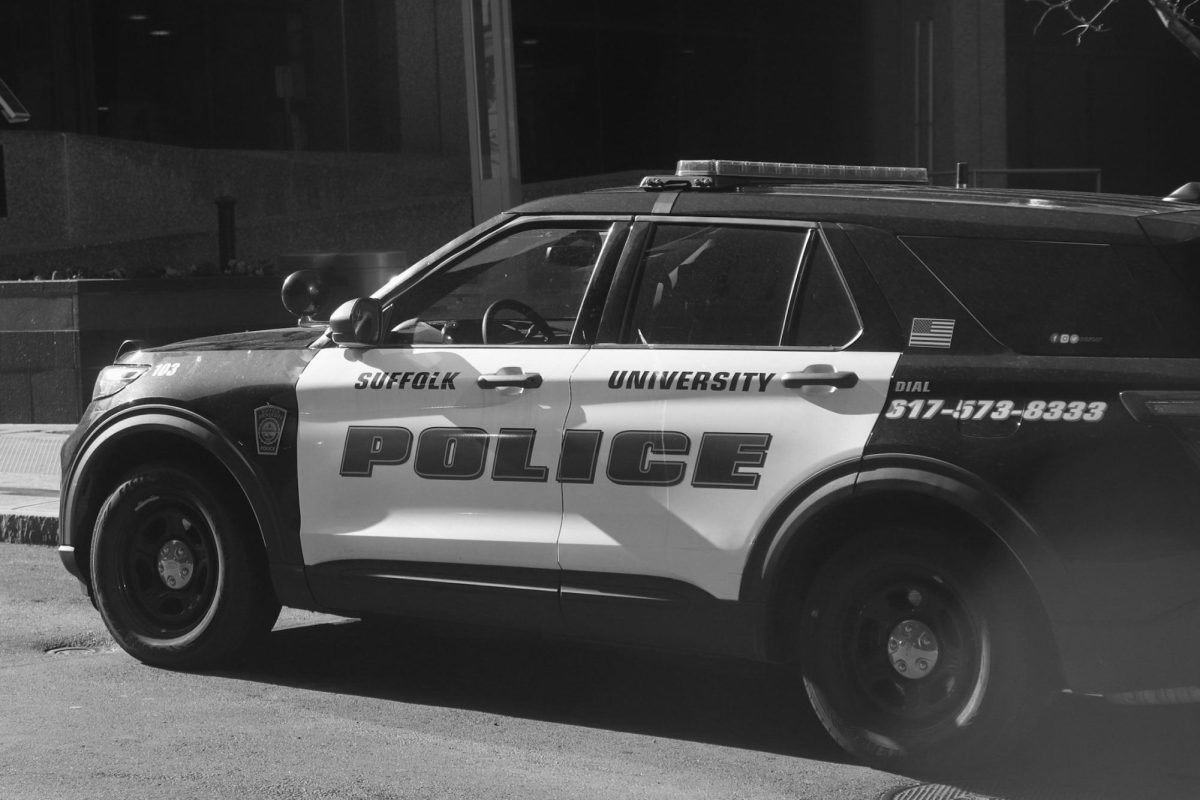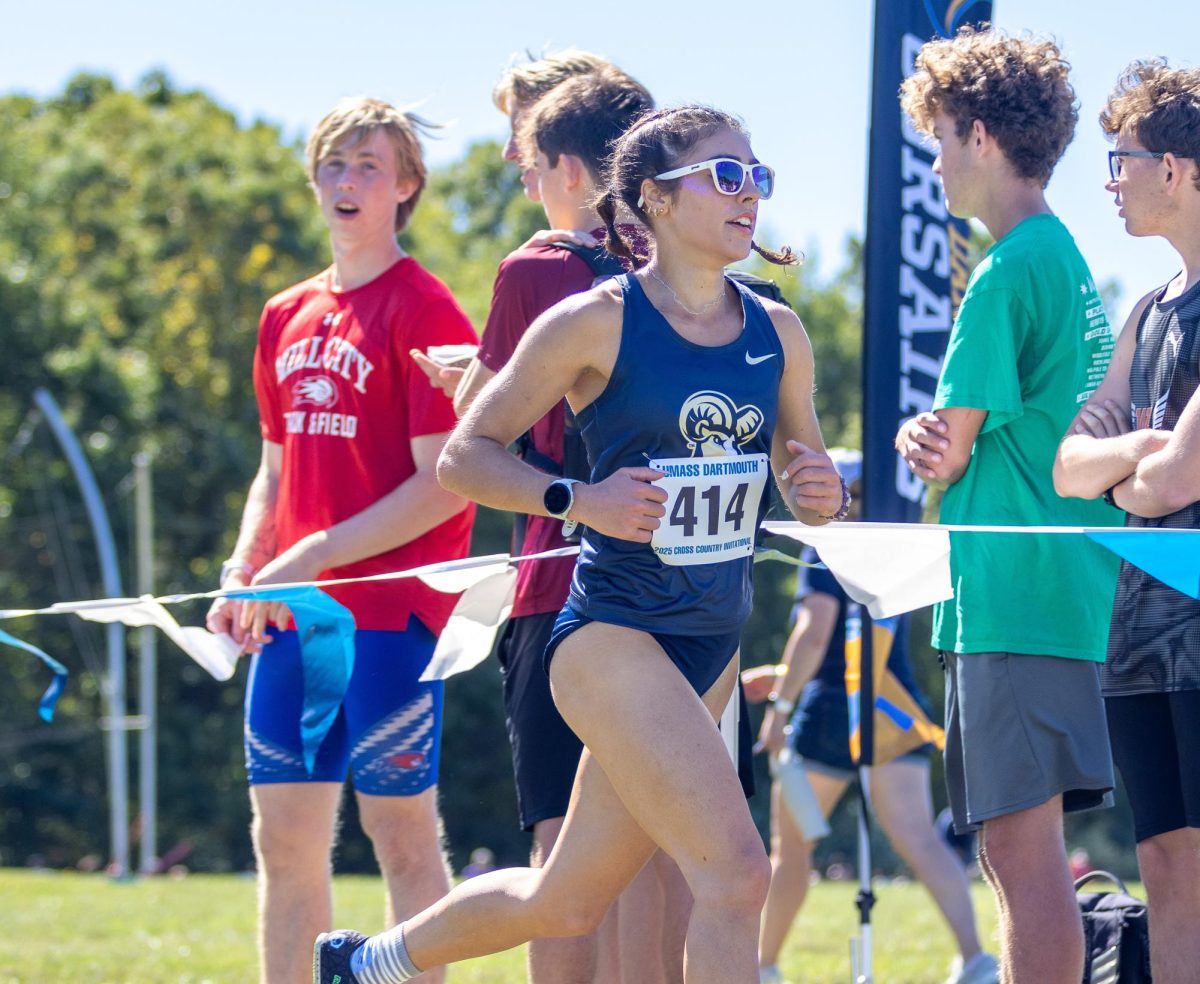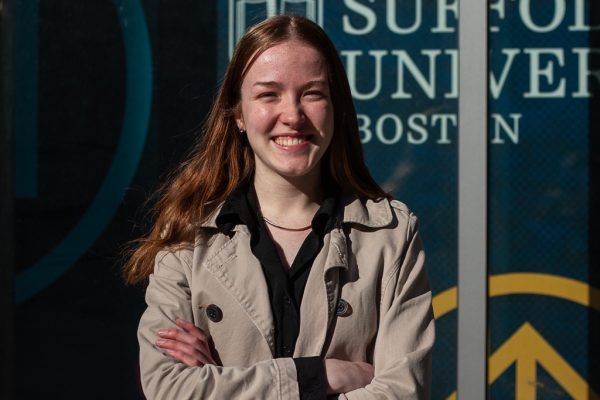Suffolk University students from the undergraduate, graduate and law schools gathered to share their perspectives on the debate surrounding the proposed arming of Suffolk University Police Department officers during a forum March 26.
The forum was structured as a “listening session,” with students from the three schools speaking to a packed Keches Room to share their perspectives on the matter, but not have questions answered or comments responded to at the time. Attendance included Chair of the Board of Trustees Robert Lamb, Suffolk President Marisa Kelly, Vice Chair of the Board Amy Nechtem and Board member Ernst Guerrier, as well as SUPD Chief James Connolly and Lieutenant Ramon Nunez.
According to Lamb, the decision for the format of the forum was based on the goal of hearing as much feedback as possible, taking into account students’ busy schedules. From input and questions received, Kelly and Lamb said administration will compile a list of frequently asked questions for students to refer to. At the start of the forum, Kelly said the FAQ would go out at the end of the week, accompanied by a survey to gauge what action would make students feel safest. A similar survey has been sent to faculty members.
“The thought was this is probably the most efficient way of using everyone’s time, clearly not ours because we’re willing to stay for as long as it takes to answer any questions, but everyone’s busy,” said Lamb. “The thought, as I said, was to listen to people’s issues and thoughts, tailor the FAQs for that and then look forward to hearing the results of the survey.”
Many students expressed the importance of addressing the underlying concerns surrounding an active shooter situation rather than responding to the concerns with guns, namely improving mental healthcare and support services at the university.
“I will tell you, as a four-time survivor, metal detectors do not work and police with guns are too late … We currently offer mental health counseling at 73 Tremont up on the fifth floor. It is underfunded and underutilized. If you want to stop school shootings, you want to prevent people from being in crisis and making poor choices in the first place,” said Suffolk Law student Faye Golden, who has survived four school shootings throughout her career as a teacher.
Among the concerns expressed over the roughly hour-long forum were surrounding how community members’ identities largely influence how they interact with police and how they would be impacted in the event of an active shooter situation.
“If we are concerned about the safety of students, we need to think about those who are most marginalized among us, which are disabled students … I think that if we did have an active shooter on this campus, unfortunately, the only people who would end up massacred in that situation are students with mobility issues, because our elevators would not be working and our stairs are really difficult to climb,” said Nasra Mohamed.
While students recognized the need to consider the worst-case scenario of an active shooter, many also stressed how arming Suffolk police officers would impact the day-to-day lives of students and their interactions with SUPD officers.
“While the 1% of cases where school shootings are devastating, we cannot forget what introducing a gun does to the other 99% of cases where that might make things worse,” said senior and SGA Treasurer Matthew Lee.
Some students were disappointed by the structure of the forum, many having prepared questions for administration, Board members and SUPD in order to gain more information on the debate in addition to sharing their own perspectives and thoughts.
“Personally, I was troubled by the fact that it wasn’t a Q&A … at the end of the day, students will still show up and show out, so I’m proud of the Suffolk community for standing in solidarity for their own independent opinions, regardless of what it was,” said SGA President Clinton Oreofe.
According to Lamb, the perspectives of students are crucial for Board members and administration to understand what students’ concerns are and how the decision will impact them either way.
“It’s wonderful to hear people’s opinions. Even though some of those opinions weren’t in favor of what we were talking about, it’s always helpful to hear criticism and it’s always helpful to hear honest feedback,” said Lamb.
According to Lamb, there are no further student forums or Q&A sessions currently planned, but he and Kelly are available and have an “open-door policy” to discuss the matter with any groups of students or individuals who would like to voice their opinions and ask questions.
“It’s a very difficult decision, and it’s not a simple one,” said Lamb. “Frankly, we are going to continue to struggle with this for a little while, but getting input from our community is critical.”
During a Student Government Association meeting March 28, Oreofe opened the floor for a discussion amongst Senators and students in attendance in preparation for an SGA resolution narrowing the association’s collective opinion and recommendations on the issue.
“This [resolution] has been in my computer for well over a month. This is something that I’m not taking lightly. I’ve conducted several hours of research, I’ve compiled data from the CDC, the FBI, the Harvard T.H. Chan School of Public Health … It essentially is saying everything that the student body made clear after the March 26 forum, and I also want you all to know that this resolution is one of the best ways that we can tell the Board of Trustees the student body’s unified position,” said Class of 2026 Senator and Student Affairs Committee Chair Andrew Gomes, who has led the writing of the resolution.
During the meeting, a vote of all elected senators in attendance resulted in 18 senators voting to not support the arming of SUPD officers, two senators abstaining from the vote and none voting in support.
“You’re not just a student here, like I said last meeting, you are also a stakeholder in the university, you put too much weight into the school for them to not listen to you,” said Gomes.


